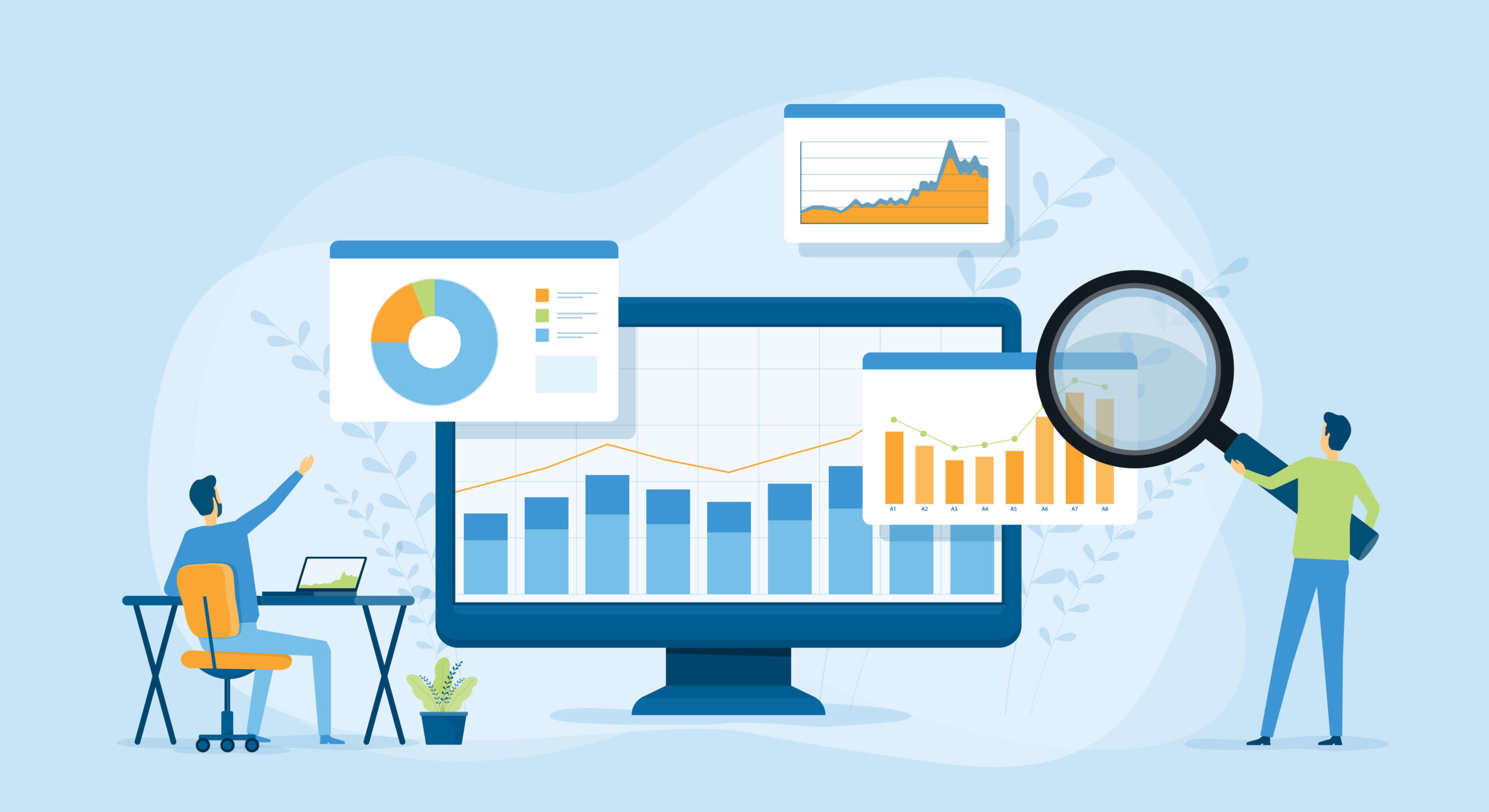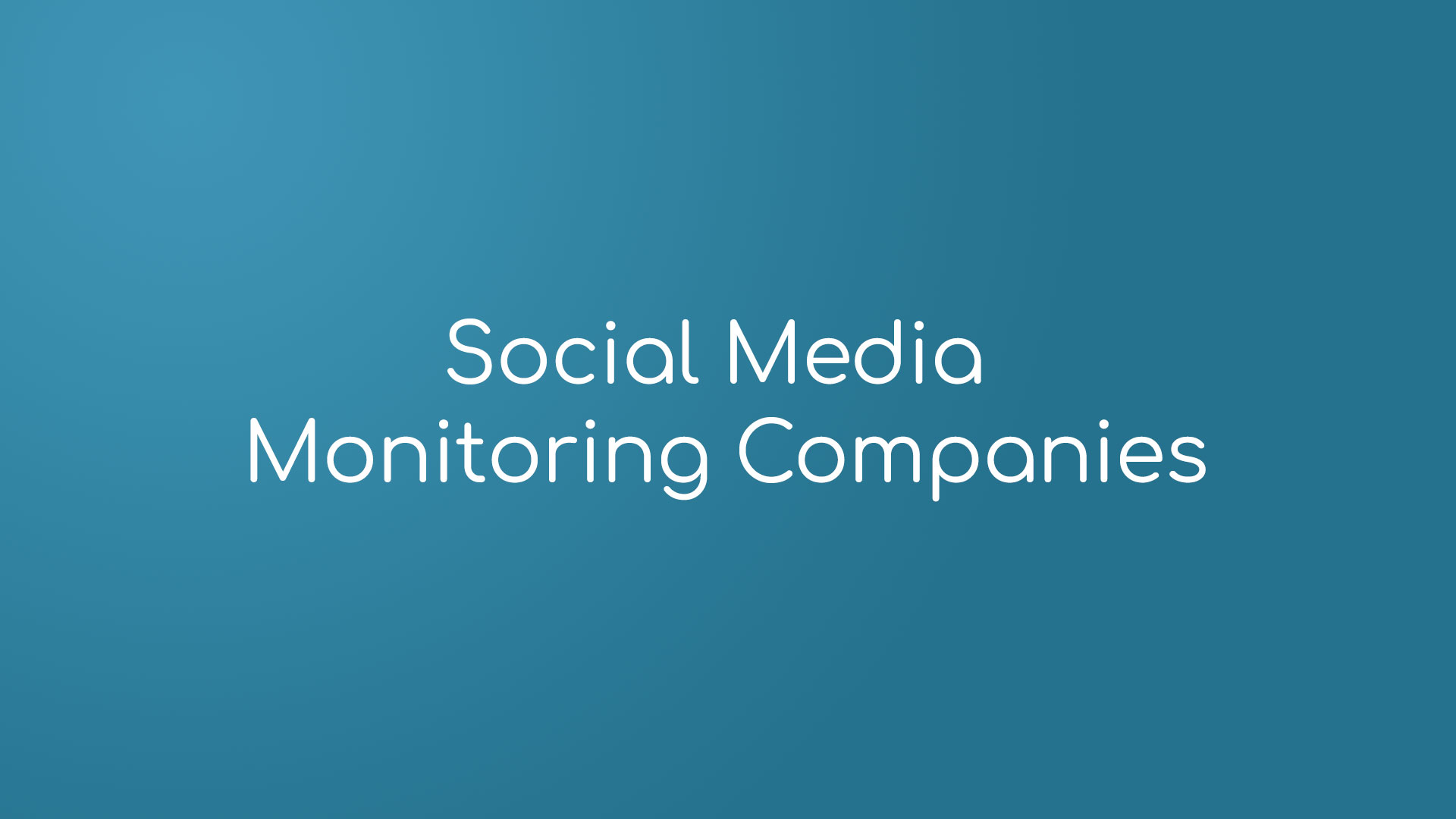In today’s fast-paced digital world, staying abreast of what’s being said about your brand, competitors, and industry is crucial. This is where media monitoring companies come into play. These specialized firms offer invaluable services that help businesses monitor, analyze, and leverage media mentions effectively. Let’s dive into the realm of media monitoring and discover how these companies operate, their benefits, and what to consider when choosing one.
What Are Media Monitoring Companies?

Media monitoring companies are organizations dedicated to tracking and analyzing media mentions across various platforms. These platforms include traditional media outlets like newspapers, television, and radio, as well as digital channels such as social media, online news sites, blogs, forums, and review sites. By employing sophisticated technologies and algorithms, these companies sift through vast amounts of data to provide actionable insights to their clients.
How Media Monitoring Companies Work
The process of media monitoring involves collecting, analyzing, and interpreting data from different sources to extract relevant information. Companies use a combination of advanced tools and human expertise to ensure comprehensive coverage and accurate analysis. Automated crawlers scour the web for mentions of specified keywords, while human analysts verify and contextualize the data.
Data sources for media monitoring include mainstream media outlets, social media platforms, online forums, blogs, review sites, and even broadcast transcripts. By aggregating data from these diverse sources, media monitoring companies offer a holistic view of public perception and sentiment.
Benefits
The benefits of partnering with media monitoring companies are manifold:
1. Understanding Audience Sentiment
By monitoring online conversations and sentiment analysis, businesses gain valuable insights into how their target audience perceives their brand, products, and services. This knowledge allows for informed decision-making and targeted marketing strategies.
2. Tracking Brand Mentions and Reputation Management
Media monitoring enables businesses to keep track of mentions of their brand across various channels. This helps in identifying potential PR crises, addressing customer concerns promptly, and maintaining a positive brand image.
3. Competitive Analysis and Market Insights
Media monitoring provides valuable intelligence on competitors’ activities, industry trends, and market developments. This information allows businesses to stay ahead of the curve, identify emerging opportunities, and adjust their strategies accordingly.
4. Crisis Management and Risk Mitigation
In the event of a crisis or negative publicity, media monitoring companies play a crucial role in assessing the situation, gauging public sentiment, and formulating an appropriate response. Timely intervention can help mitigate damage to the brand’s reputation and minimize long-term repercussions.
Key Features
When selecting a media monitoring service provider, it’s essential to consider the following key features:
1. Real-time Monitoring Capabilities
The ability to monitor media mentions in real time ensures that businesses stay informed and can respond promptly to emerging issues or opportunities.
2. Comprehensive Coverage Across Various Media Types
An effective media monitoring service should cover a wide range of media sources, including traditional and digital platforms, to provide a comprehensive view of the landscape.
3. Advanced Analytics and Reporting
Robust analytics and reporting capabilities help businesses derive actionable insights from media data, track performance metrics, and measure the impact of their PR and marketing efforts.
4. Customization Options and Scalability
Tailored monitoring solutions that align with the specific needs and objectives of the business are essential. Scalability is also crucial to accommodate growth and changing requirements over time.
5. Integration with Other Tools and Platforms
Seamless integration with existing tools and platforms, such as CRM systems and marketing automation software, enhances efficiency and streamlines workflows.
Top Media Monitoring Companies in the Market
Several media monitoring companies offer a wide range of services tailored to different industries and business needs. Some of the leading players in the market include:
- AIM Insights: Known for its advanced social media listening capabilities and customizable dashboards.
- Meltwater: Offers comprehensive media monitoring and social media management solutions with powerful analytics.
- Cision: Provides a suite of PR and marketing communication tools, including media monitoring, influencer outreach, and press release distribution.
- Talkwalker: Specializes in social media analytics and influencer identification, with real-time monitoring across multiple channels.
- Critical Mention: Focuses on broadcast monitoring, allowing businesses to track mentions on television and radio.
Factors to Consider When Choosing a Media Monitoring Company
Before committing to a media monitoring service provider, businesses should evaluate the following factors:
1. Budget and Pricing Models
Media monitoring services vary widely in terms of pricing, depending on factors such as coverage scope, frequency of monitoring, and additional features. It’s essential to choose a provider that offers a pricing model that aligns with the budget and requirements of the business.
2. Specific Needs and Requirements
Every business has unique monitoring needs based on its industry, target audience, and objectives. It’s essential to select a provider that can tailor its services to meet these specific requirements effectively.
3. Customer Support and Reliability
Prompt and reliable customer support is critical, especially in situations requiring immediate assistance or troubleshooting. Businesses should choose a provider known for its responsive customer service and technical support.
4. Data Security and Privacy Policies
Given the sensitive nature of media data, it’s crucial to partner with a provider that prioritizes data security and adheres to strict privacy policies. This includes measures to protect data against unauthorized access, breaches, and misuse.
Case Studies
Let’s explore some real-world examples of businesses that have successfully leveraged media monitoring to achieve their objectives:
Example 1: Retail Company Boosts Brand Visibility
A leading retail brand used media monitoring to track online mentions of its products and competitors. By analyzing customer feedback and market trends, the company identified opportunities to enhance its offerings and improve brand visibility.
Example 2: Tech Firm Enhances Crisis Response
During a product recall, a tech firm employed media monitoring to monitor public sentiment and news coverage. By promptly addressing concerns and providing transparent updates, the company managed to mitigate reputational damage and maintain customer trust.
Example 3: Hospitality Chain Improves Service Quality
A hospitality chain utilized media monitoring to gather feedback from guests across various online platforms. By analyzing customer reviews and sentiment, the company identified areas for improvement and implemented targeted initiatives to enhance service quality and guest satisfaction.
Future Trends
As technology continues to evolve, several trends are shaping the future of media monitoring:
1. Artificial Intelligence and Machine Learning Advancements
AI-powered algorithms are revolutionizing media monitoring by enabling more accurate sentiment analysis, trend detection, and predictive insights. Machine learning models can adapt and improve over time, enhancing the effectiveness of monitoring efforts.
2. Predictive Analytics for Proactive Decision-Making
Predictive analytics tools are enabling businesses to anticipate trends, identify potential risks, and seize opportunities before they arise. By analyzing historical data and market indicators, companies can make informed decisions and stay ahead of the competition.
3. Integration with Emerging Technologies like Blockchain
Blockchain technology holds the potential to revolutionize media monitoring by ensuring data integrity, transparency, and security. By leveraging blockchain-based platforms, businesses can trust the authenticity of media data and prevent tampering or manipulation.
Conclusion
In conclusion, media monitoring companies play a vital role in helping businesses navigate the complex media landscape, understand audience sentiment, and make informed decisions. By leveraging advanced technologies and analytics, these companies provide valuable insights that drive strategic initiatives and enhance brand reputation. As the digital ecosystem continues to evolve, businesses must prioritize media monitoring as an essential component of their PR and marketing strategies.
Looking to experience the power of media monitoring firsthand? Request a demo from AIM Technologies today and discover how our innovative solutions can help you gain a competitive edge in the digital age.
FAQs
What is media monitoring, and why is it important for businesses?
- Media monitoring involves tracking and analyzing mentions of a brand, product, or industry across various media channels. Businesses need to understand public sentiment, monitor competitors, and manage their reputations effectively.
How do media monitoring companies gather and analyze data?
- Media monitoring companies use a combination of automated tools and human expertise to collect data from sources like social media, news sites, blogs, and forums. They then analyze this data to extract insights and trends.
What are some common use cases for media monitoring?
- Common use cases include brand reputation management, crisis monitoring, competitive analysis, market research, and influencer identification.
How do businesses choose the right media monitoring company for their needs?
- Businesses should consider factors such as coverage breadth, real-time monitoring capabilities, analytics and reporting features, customization options, pricing, and customer support.
What are some emerging trends in media monitoring?
- Emerging trends include the use of artificial intelligence and machine learning for sentiment analysis and predictive insights, as well as integration with technologies like blockchain for data security and transparency.


